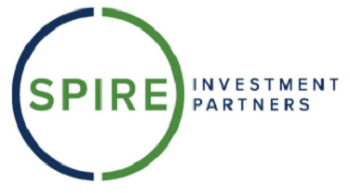Spire Wealth Management provides support to a number of independent financial advisors and their firms. This firm is technically registered as an investment advisor, but it doesn't work directly with investor clients. Its headquaraters is located in Reston, Virginia, but it has partnered with advisors across the U.S. Spire has about $3.5 billion in assets under management (AUM) across its advisory network, and advisors work with a range of individual and institutional clients.
Spire is a fee-based firm, which means some of its advisors can receive commissions for insurance or securities sales. A fee-only firm, on the other hand, earns all of its compensation from client-paid fees.
Spire Wealth Management Background
Spire Wealth Management was founded in Virginia in 2001. The firm is owned by Spire Investment Partners, LLC along with CEO David L. Blisk. The firm provides business services to an independent network of advisory firms, but each firm retains its independence, so Spire doesn't actually own any of the firms in its network.
Advisors who work with Spire come from all over, so they may or may not hold financial certifications. Some of the most common ones are chartered financial analyst (CFA), certified financial planner (CFP) and chartered financial consultant (ChFC).
Spire Wealth Management Client Types and Minimum Account Sizes
Spire Wealth Management works directly with financial advisors, not investors. However, the firm's network of independent advisors works with multiple kinds of clients, most of which are individuals without a high net worth. Other clients include high-net-worth individuals and businesses.
Depending on which investment strategy a client uses through Spire, their minimum investment will be anywhere from $25,000 to $100,000. The firm also offers access to a Schwab investment program, which has a standard $5,000 minimum, or a $50,000 minimum if you enroll in the tax-loss harvesting feature.
Services Offered by Spire Wealth Management
As noted, Spire Wealth Management works with a network of independent advisory firms. The firm provides independent advisors with business support and model allocation portfolios that they can then use with their clients. Proprietary model portfolio strategies include:
- Corbett Road Opportunity Strategy
- Corbett Road Core Demand Strategy
- Corbett Road Dynamic Strategy
- Corbett Road EDGE Strategy
- Corbett Road MyPath Strategies
- Schwab Institutional Intelligent Portfolios
- Manager of Managers Program
Through Spire, firms also provide clients with financial planning services that relate to issues such as retirement, taxes and estate planning. Assest are managed mainly on a discretionary basis.
Spire Wealth Management Investment Philosophy
Since Spire Wealth Management doesn't provide investment management strategies directly to clients, the firm doesn't have a specific, overarching investment philosophy. The model programs and portfolios that the firm offers for use have varying philosophies. They each all use different types of investments, so your advisor will pick the one best suited to your needs.
Advisors work with clients to determine their financial and investment objectives, using this information to properly develop an investment plan made up of a variety of models and programs, along with other potential strategies. While specific management styles vary based on the advisor and the program, the following investments are most commonly used:
- Exchange-listed securities
- Securities traded over-the-counter
- Corporate debt securities (other than commercial paper)
- Municipal securities
- Mutual fund shares
- United States governmental securities
- Options contracts on securities
Fees Under Spire Wealth Management
At Spire Wealth Management, fees for investment management services are charged based on a percentage of a client's AUM. These fees vary significantly based on the advisor, program and the agreement between the advisor and the client. Fees tend to range from 0.25% to 2.50% annually.
Financial planning fees are typically charged on an hourly basis at a rate of between $100 and $500 per hour. These fees may be negotiated.
What to Watch Out For
Spire Wealth Management has four disclosures listed on its Form ADV. Of these, one is criminal in nature, while the other three are regulatory. All four of them relate to advisory affiliates of the firm.
Spire is a fee-based firm, as some of its advisors are registered as broker-dealer representatives or insurance agents who can receive commissions from the sale of financial products to clients. Although this is a potential conflict of interest, the firm is a fiduciary, which means it must legally act in the best interests of clients at all times.
Opening an Account With Spire Wealth Management
Remember that you can't work directly with Spire Wealth Management, as you'll need to work with an advisor in its network. You can find one of these advisors by submitting a contact form on Spire's website or calling (703) 657-6060.
All information is accurate as of the writing of this article.
Tips for Finding a Financial Advisor
- A financial advisor can be a key resource in your personal financial journey. Finding the right financial advisor doesn’t have to be hard, though. SmartAsset’s free tool matches you with financial advisors in your area in 5 minutes. If you’re ready to be matched with local advisors, get started now.
- Whether you've been investing for retirement for years or are just getting started, SmartAsset has resources that have you covered. Check out our free retirement calculator today.

